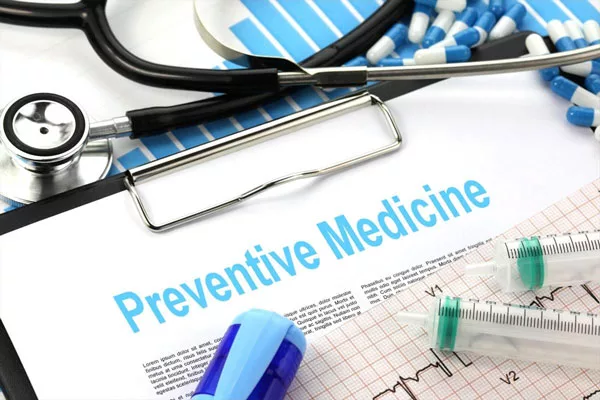Preventive Care: A Golden Guide for the Golden Years
- Introduction
- Why Is Preventive Care Important?
- Preventive Care Examples to Get You Started
- Preventive Care Guidelines for Adults: The Retirement Edition
- What Labs Are Covered Under Preventive Care?
- Preventive Care Insurance: Is It Worth It?
- Preventive Care Dental: Don’t Forget the Pearly Whites!
- What Is Covered Under Preventive Care: The Nitty-Gritty
- Preventive Care Benefits: More Than Just Health
- Conclusion
- Frequently Asked Questions
Introduction
Preventive Care is not just a buzzword you hear at the doctor’s office; it’s a golden ticket to a healthier, happier retirement. Ever thought your are just for kicking back and sipping piña coladas? Think again!
In this comprehensive guide, we’ll dive into why preventive care is crucial, especially when you’re enjoying your well-earned freedom. So, let’s get started, shall we?
Why Is Preventive Care Important?
Ah, the million-dollar question—or should I say, the million-dollar medical bill you want to avoid? Preventive care is all about taking steps today to avoid health problems tomorrow. Preventive care is essential for preventing disease and improving health outcomes by identifying risks early and promoting healthier lifestyles.
Remember Uncle Bob who thought retirement was all about BBQ and beer? Yeah, don’t be like Uncle Bob. Prevention and early intervention can help manage chronic disease and reduce the risk of developing new diseases, keeping you healthier for longer. His only six-pack these days is the one in his fridge, which is why focusing on preventive health is so important for maintaining quality of life.
The Cost of Neglect
Ignoring preventive care can lead to severe health issues down the line, including serious complications that may require more intensive and costly treatment, and let’s be honest, nobody wants to spend their retirement savings on hospital bills. In severe cases, neglecting preventive care can even increase the risk of death.
Peace of Mind
There’s something comforting about knowing you’re doing all you can to stay healthy, especially when addressing health concerns through preventive care, which can provide peace of mind. It’s like having a safety net, but for your body and mind.
Increased awareness of preventive care options can empower individuals to take charge of their health.
Preventive Care Examples to Get You Started
If you’re new to the whole preventive care scene, don’t worry; we’ve got you covered. Preventive services and preventive health services include a range of preventive measures such as screenings, immunizations, and regular visits to your healthcare provider. And no, we’re not talking about the latest Marvel movie screening, although that does sound fun!
Patients benefit greatly from regular visits and active engagement with preventive care, as these steps help detect health issues early and support long-term wellness.
Screenings
From blood pressure checks to cancer screenings, screening tests and health screenings are essential tools for early detection of health issues. Assessments such as height, weight, and BMI are also part of routine screening to evaluate overall health status. These quick tests can catch potential issues and help screen for potential health problems before symptoms appear.
Lifestyle Changes
Swap that couch for a yoga mat, and you won’t regret it. Managing stress is an important part of preventive care, and incorporating relaxation techniques can make a big difference. Mental health is just as important as physical health, and regular mental health assessments can help with early detection of potential issues. Exercise and a balanced diet can do wonders for your health. Education on healthy habits empowers individuals to make better lifestyle choices.
Preventive Care Guidelines for Adults: The Retirement Edition
You’re not 21 anymore, and that’s okay! Your preventive care needs change as you age, and that’s perfectly fine. Having a primary care provider is important to help coordinate your preventive care and ensure you receive recommended screenings and exams.
Here are preventive care guidelines for adults. Providers and healthcare providers can help you navigate these preventive care guidelines and recommend the right services for your needs.
Most health plans require you to see providers within your plan’s network to receive preventive care coverage at no cost.
Age-Specific Screenings
Once you hit certain age milestones, screening recommendations vary based on ages, risk factors, and family history. For example, colonoscopies become a regular part of your routine after 50.
Exercise Recommendations
Walking counts, especially to the fridge and back. But seriously, aim for at least 150 minutes of moderate exercise per week.
Dietary Guidelines
More greens, less grease. Sorry, bacon lovers, but your heart will thank you.
What Labs Are Covered Under Preventive Care?
A little prick for a lot of peace—that’s what blood tests are all about. But what labs should you focus on? Research has shown that these lab tests play a crucial role in preventive care by enabling early detection and evidence-based interventions.
Many of these lab tests are thoroughly tested for accuracy and reliability before being recommended for routine preventive care.
By including these lab tests in your preventive care routine, you are not only staying ahead of potential health issues but also contributing to the overall quality of preventive care.
Blood Tests
From checking your glucose levels to monitoring your cholesterol, these tests give you a comprehensive view of your health.
Cholesterol Checks
Know your numbers, not just your bingo numbers. High cholesterol can lead to heart issues, so keep an eye on it.
Other Essential Tests
Think of these as your adult report card. From liver function tests to thyroid checks, these labs can tell you a lot about your health.
Preventive Care Insurance: Is It Worth It?
Spoiler alert: It’s not your golf membership that’s covered here. But preventive care insurance can be a lifesaver, literally and financially. Most health plans include preventive care services as part of their health care offerings, often covering eligible screenings and exams at no cost to you.
When scheduling preventive care, it’s important to check if your provider is in your plan’s network to avoid unexpected out-of-pocket costs.
What’s Usually Covered
Most plans cover essential screenings, vaccinations, and even some medications, typically including preventive services, clinical preventive services, and preventive health services as part of their coverage.
How to Choose the Right Plan
Read the fine print, even if you need a magnifying glass. Make sure the plan aligns with your specific needs.
Financial Benefits
Investing in preventive care insurance now can save you a ton of later. Think of it as a down payment on your future health.
Preventive Care Dental: Don’t Forget the Pearly Whites!
Open wide, and we don’t mean for another slice of cake. Your oral health is a significant part of your overall well-being.
Regular Check-Ups
A bi-annual visit to the dentist can prevent a lot of future pain, both physical and financial.
Dental Cleanings
Because nobody likes coffee-stained smiles or spinach-stuck teeth. Regular cleanings are a must.
Importance of Oral Health
Your mouth is the gateway to, well, your stomach. Poor oral health can lead to digestive issues and even heart problems.
What Is Covered Under Preventive Care: The Nitty-Gritty
It’s like a shopping list, but for your health. Most preventive care plans cover essential screenings, immunizations—including childhood vaccines and flu shots—vaccinations, and consultations. Vaccines play a vital role in preventive care by protecting against serious diseases and are recommended by authoritative organizations such as the Centers for Disease Control and Prevention.
What’s Usually Not Covered
Sorry, spa days don’t count. Make sure you know what’s included and what’s not in your plan.
How to Maximize Benefits
Read up, ask questions, and make the most of what’s available. Maximize benefits, minimize regrets.
Preventive Care Benefits: More Than Just Health
Being proactive about your health has benefits that go beyond the physical. Preventive care supports healthy development in children and promotes healthy aging in adults, helping you maintain well-being at every stage of life. It’s good for your emotional well-being, your social life, and even your wallet.
As a patient, taking an active role in preventive care helps you maintain a higher quality of life and supports long-term health.
Emotional Well-Being
When you take care of yourself, you feel better mentally. It’s a win-win situation.
Be the life of the party, not the party pooper. Good health means more fun times with friends and family.
Financial Gains
Less medical bills mean more cruise trips. Or more piña coladas, if that’s your thing.
Conclusion
So there you have it—a comprehensive guide to preventive care in your golden years. Ready to take control of your health? Your future self will thank you.
And hey, if you’ve got a knack for health and wellness, ever thought of starting a blog? In 2023, it’s easier than ever, especially with AI doing half the work!
Frequently Asked Questions
What exactly is Preventive Care, and why should I care?
Preventive Care is about proactive health steps, crucial for retirees. Think of it as investing in your future self.
Is Preventive Care covered by insurance?
Most insurance plans cover basic Preventive Care services like screenings and vaccinations. Always check your policy to see what’s included and what’s not.
Are there specific Preventive Care guidelines for retirees?
Absolutely! As we age, certain screenings and vaccinations become more critical. Your healthcare provider can offer age-specific guidelines tailored to your needs.
What are some examples of Preventive Care?
Preventive Care can include screenings like blood pressure checks, vaccinations, and lifestyle changes such as diet and exercise. It’s a broad field that covers various aspects of health.
What labs are usually covered under Preventive Care?
Blood tests, cholesterol checks, and glucose screenings are often covered. However, it’s best to consult your insurance plan for specifics.
What about dental Preventive Care?
Oral health is a significant part of overall well-being. Regular check-ups and cleanings are usually recommended. Some insurance plans offer dental coverage, so it’s worth checking out.
How often should I engage in Preventive Care?
The frequency depends on various factors like age, health condition, and medical history. Your healthcare provider can offer personalized recommendations.
Can I do Preventive Care at home?
While professional screenings are essential, there are steps you can take at home, like regular exercise and a balanced diet, to maintain good health.
Is it too late to start Preventive Care if I’m already retired?
It’s never too late! While earlier is always better, taking steps to manage your health can benefit you at any age.
What are the benefits of Preventive Care?
Beyond physical health, Preventive Care can improve your emotional well-being, social life, and even your finances by reducing future medical costs.
I’m interested in this topic. How can I learn more?
If you’ve got a knack for health and wellness, ever thought of starting a blog? In 2023, it’s easier than ever, especially with AI doing half the work!



